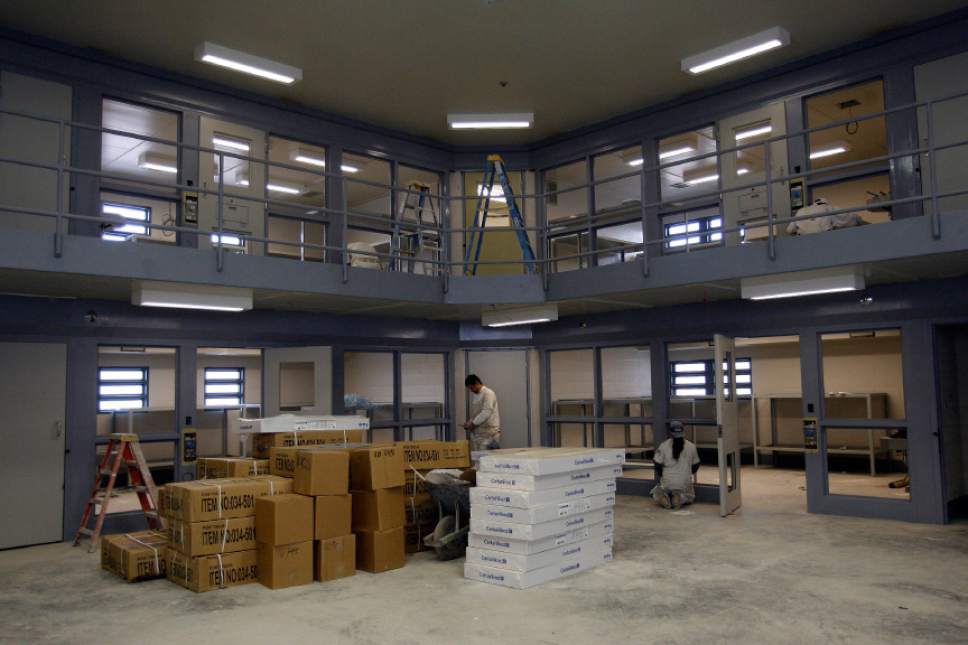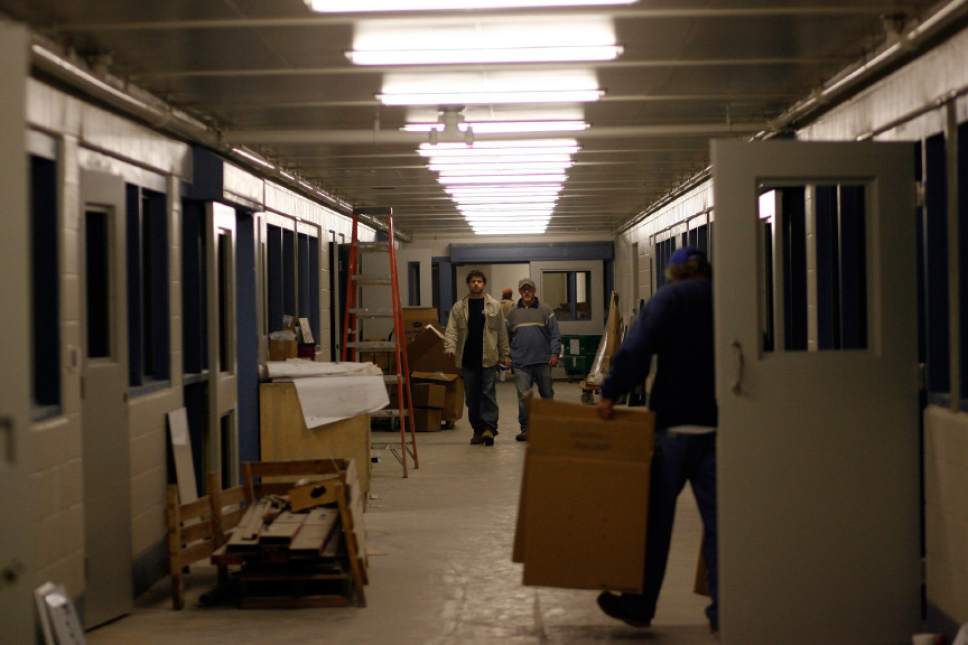This is an archived article that was published on sltrib.com in 2016, and information in the article may be outdated. It is provided only for personal research purposes and may not be reprinted.
A global human rights group says the 2014 death of a migrant detained in Utah is among evidence that continuing subpar care by U.S. immigration officials "literally kills people."
Human Rights Watch released a report Thursday evaluating recently released federal reviews of 18 deaths of migrants occurring in U.S. custody from mid-2012 to mid-2015.
It said evidence shows poor care likely contributed to seven of the 18 deaths, including that of Santiago Sierra-Sanchez, 38, who died July 12, 2014, while incarcerated by U.S. Immigrations and Customs Enforcement (ICE) at the Utah County Jail. He was killed by a Staphylococcus aureus infection and pneumonia.
ICE took custody of him the day before after it identified him as a previously deported criminal alien from Mexico while he was being held on local charges in Salt Lake County.
Human Rights Watch said an investigation by the ICE Office of Detention Oversight found that Sierra-Sanchez, who also went by the name Jorge Sierra Sanchez, told an intake nurse at the Utah County Jail that he had a six- to seven-month history of lower back pain that had worsened in the preceding few days.
ODO said a video showed that he was unable to stand without assistance, and that he told officers he was "dying" from the pain in his back.
The federal review said nursing staff suspected he "might be playing games to get narcotic pain medication." It said staff did not thoroughly assess him — including taking his temperature, which could have helped find the infection that killed him.
It said his pulse and blood pressure increased between his intake and his evaluation by a registered nurse, "which warranted a consultation with a provider," but that did not occur.
The federal investigation said that on the night Sierra-Sanchez died, he told a nurse he was "spitting blood" around 8 p.m., but the nurse told ICE there was no evidence of it.
Around 3:30 a.m., a correctional officer saw he was unresponsive. Six minutes elapsed before staff entered his cell, where they found him in a pool of bloody vomit. The officer called for medical assessment, not an emergency, so a nurse arrived without emergency equipment.
The federal review found that delayed CPR and the call for emergency medical services before Sierra-Sanchez died later that morning.
Because the case involved an ICE detainee, Utah County sheriff's Lt. Matt Higley referred all inquiries about it to ICE.
That agency released a written statement saying ICE "remains committed to providing a safe and humane environment for all those in its custody, including affording access to necessary and appropriate healthcare. ICE takes the death of any individual that occurs in the agency's custody very seriously."
ICE added it investigates all deaths in custody, and the findings in the report "are the result of exhaustive case reviews conducted by ICE's own Office of Detention Oversight, which was established in 2009 as part of the agency's comprehensive detention reforms."
Federal reviews identified decisions that it considered violations of detention standards, but did not reach conclusions about whether that contributed to detainees' deaths. Human Rights Watch asked two experts to review cases, and both said poor care contributed to Sierra-Sanchez's death, and six others.
"Medical staff essentially abandoned this patient by not properly assessing him or following up," wrote Dr. Marc Stern, former health services director for Washington State's Department of Corrections.
He added that if staff had followed up, "There is a chance the patient's emerging infection would have been noted and treated, avoiding death or at least greatly increasing the odds of survival."
Concurring was Dr. Allen Keller, director of the New York University School of Medicine Center for Health and Human Rights.
With the type of infection that Sierra-Sanchez had, "Rapid treatment including intravenous antibiotics can make all the difference between life and death. But it appears they missed some of the basics like monitoring his temperature."
Human Rights Watch said the Utah case was an example of continuing substandard care for migrants including sluggish emergency response, misuse of solitary confinement for mental health patients and medical personnel practicing beyond the scope of their license and expertise.
It said previous studies from other groups identified such problems, and the Obama administration had promised improvements and reforms.
"But these death reviews show that system-wide problems remain, including a failure to prevent or fix substandard medical care that literally kills people," said Clara Long, a researcher at Human Rights Watch.





